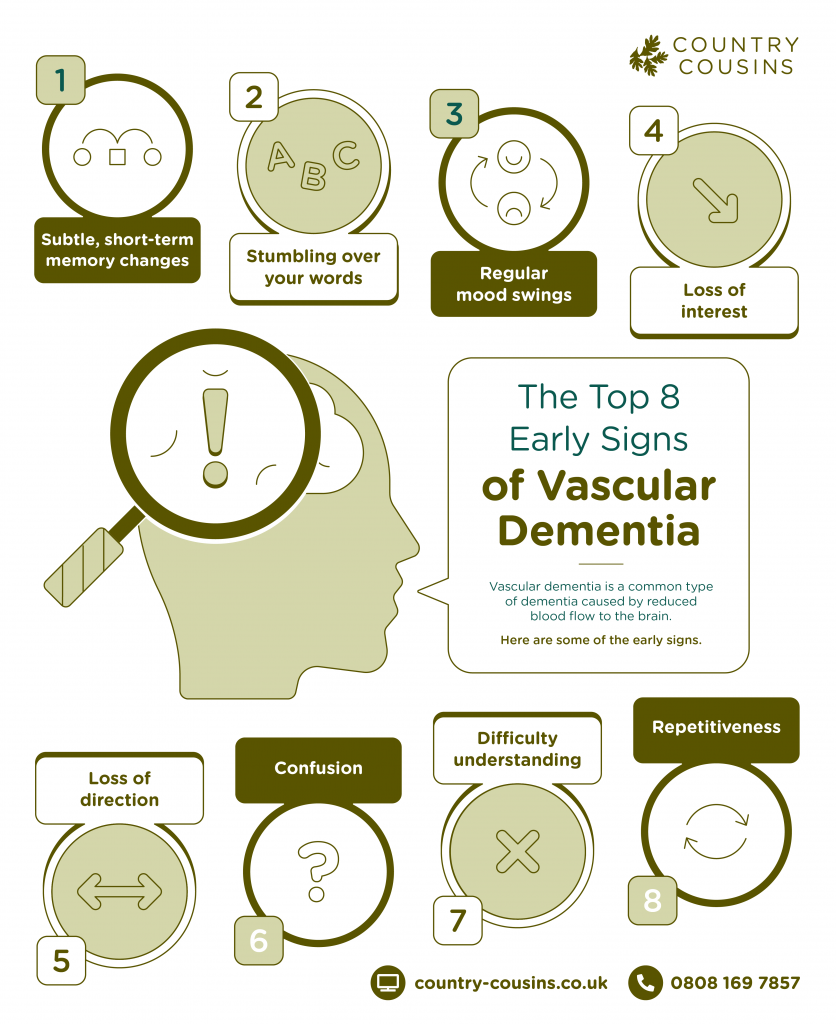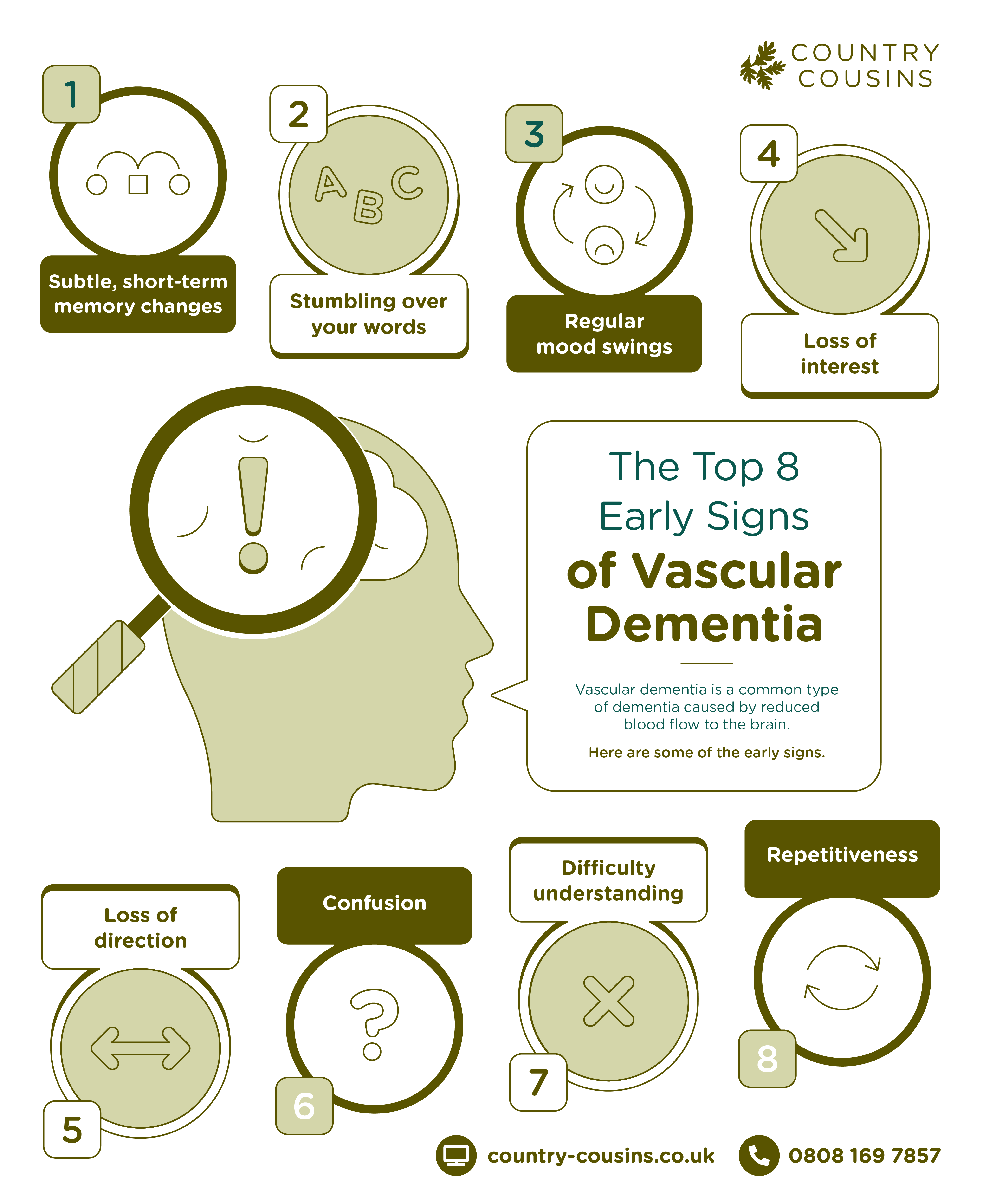
Vascular Dementia is one of the four most common forms of Dementia, alongside Fronto Temporal Dementia, Alzheimer’s, and Lewy Body Dementia. Vascular Dementia occurs due to the blood vessels deep within the brain narrowing, restricting the ease of blood flow to the brain. This can happen through a stroke or Transient Ischaemic Attacks – more commonly known as a ‘TIA’ or ‘mini stroke’.
Dementia can be one of the hardest diseases to watch a loved one go through, and its main symptoms can include memory loss and difficulties with thinking and problem solving. It can be much more likely that someone will develop Vascular Dementia if they have had a stroke in the past or if they have diabetes or heart disease, but they can reduce their risk by taking measure to keep these conditions at bay through living as healthily as possible. It has been said that there is good evidence to suggest that keeping your mind active throughout your life can decrease the risk of developing Vascular Dementia, too.
Regrettably, Vascular Dementia is estimated to affect roughly 150,000 adults in the UK, with it being more prominent in older adults. After the age of 65, the likelihood of Vascular Dementia developing doubles every 5 years. Whereas the parent group of Dementia is estimated to affect roughly 850,000 UK adults.
The rate at which a Vascular Dementia diagnosis progresses differs for everyone, and whilst there is no cure-all remedy, there are steps you can take to reduce the speed. Whether you are the one with living with Vascular Dementia, or it’s a loved one, it’s important to look after one another and make sure that we all get the care that we deserve and need. At Country Cousins, we recommend you reading online resources, books, asking your doctor questions and joining Dementia support groups.
Thankfully, there are certain symptoms that we can look out for in our partners, friends, and family so that we can catch Vascular Dementia earlier on. This might be slowness of thought or struggling to concentrate. You might even notice them having trouble balancing or moving about. Whatever it is, it’s always a good idea to get checked out if you are worried. Below you will find our infographic which outlines the 8 easy to spot, early onset symptoms for this disease. Hopefully, this will help to save yourself or a loved one from suffering in silence.
As the UK’s longest established live-in care agency, our live-in care team are absolutely incredible and know exactly how to support and help anyone living with Dementia. As scientists continue to tirelessly research a cure, we want to help with raising awareness for this disease, and support however we can. You can rest assured knowing that you can rely on our team to ensure the best advanced live-in care and support to your loved ones.
All different forms of Dementia can leave people feeling disconnected from those around them, upset and very confused. With our fully trained carer team, we can make sure that they are well looked after and supported whilst going through a really tough time in their lives.
From Alzheimer’s Research UK, more than half of us in the UK have been affected by Dementia and around 49% of UK adults say that Dementia is the health condition that they fear the most about getting. This is why it really is so important to look out for your loved ones and offer support when it’s needed. With Country Cousins, you can relax knowing that our expert team are always there to care.
